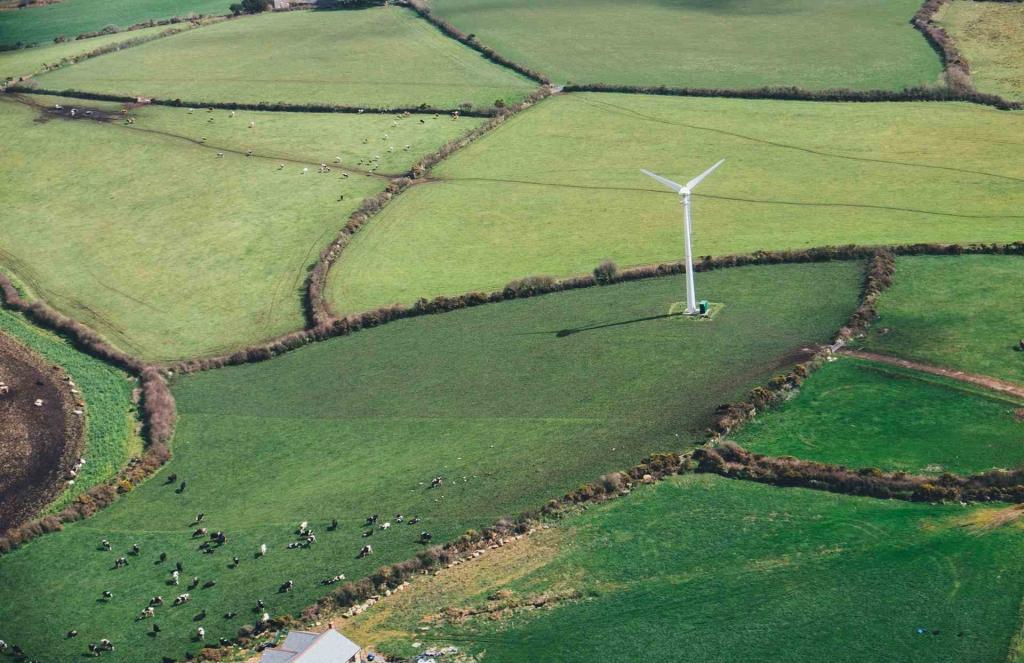Thessaloniki gets ready for its metro launch in November
The underground rapid transit lines have been under construction for almost two decades due to various project delays
 TheMayor.EU logo
TheMayor.EU logo 
While REPowerEU mainly builds upon the Fit for 55 package, it pushed benchmarks much closer, Source: Unsplash
The plan calls for accelerating green energy developments in the EU, with 2027 as a supposed cut-off deadline for Russian energy imports
Yesterday, the European Commission adopted the REPowerEU, a plan to end Europe’s dependence on Russian oil and natural gas imports. The quick development of the plan and its adoption was provoked by the war in Ukraine, as well as by Russia’s abrupt decision to cut natural gas supplies to Bulgaria and Poland.
While the plan does not propose any radical shifts in the EU’s current energy policy, as it builds upon the ‘Fit for 55' package, it does call for the Member States to reach climate targets faster. In fact, according to the plan, the bloc should be able to completely stop energy imports from Russia by 2027, which is quite an ambitious goal.
The measures proposed by REPowerEU include energy savings, diversification of energy supplies, and accelerated roll-out of renewable energy to replace fossil fuels in homes, industry and power generation. The plan goes as far as to suggest that Member States launch information campaigns on energy efficiency and energy savings in citizens’ homes.
Another key part of the new document is the EU Commission’s commitment to creating a joint energy bargaining mechanism, based on the experience of the joint Covid-vaccine rollout. As a statement by the Commission puts it succinctly, Europe needs to start preparing for next winter.
There is already a 225-billion-euro loan scheme within the Recovery and Resilience Facility, to support the measures proposed in REPowerEU. Furthermore, the Commission will adopt legislation and guidelines on how the Member States can modify their own post-Covid recovery plans to access the funds.
That budget will be supported by an additional 100 billion euros in the Multiannual Financial Framework, specifically designed to fund hydrogen and renewable energy projects.
One of the core parts of the REPowerEU plan is energy savings, with the Commission proposing enhancing long-term energy efficiency measures. This includes an increase from 9% to 13% of the binding Energy Efficiency Target under the ‘Fit for 55' package of European Green Deal legislation.
Specifically, EU authorities outline that short term behavioural changes could lead to a cut in oil and gas demand by 5%. This proposition is coupled with a call on Member States to start communication campaigns targeting households and industry, advocating for things like not heating empty rooms or setting water boilers on lower settings.
In terms of diversifying the supply of natural gas, the plan’s core proposition lies in developing the joint purchase mechanism, which has yet to be finalised. In terms of the supply itself, REPowerEU aims primarily for increasing LNG capacities, as well as green hydrogen. Domestic green hydrogen production should reach 10 million tons by 2030, coupled with an additional 10 million tons from imports.
Additionally, they want to develop a cooperation mechanism for the renewables sector of the industry and boost the import of vital raw materials.
This leads to the planned boosted roll-out of renewables to help lessen the need for natural gas overall. Here, the Commission proposes raising the ‘Fit for 55’ target for renewables from 40% of total energy production to 45%. Furthermore, the accompanying EU Solar Strategy calls for doubling the production capacity of photovoltaic systems by 2025 and installing 600 gigawatts worth of equipment by 2030.
Moreover, REPowerEU calls for creating a multi-tiered system to permit major renewable projects, based on environmental impact. This, according to them, should speed up the process in low-risk areas.

The underground rapid transit lines have been under construction for almost two decades due to various project delays

Now you can get your wine in Talence by paying directly in Bitcoin

That’s because the state has to spend money on updating the railway infrastructure rather than subsidizing the cost of the popular pass

Rethinking renewable energy sources for the urban landscape

The examples, compiled by Beyond Fossil Fuels, can inform and inspire communities and entrepreneurs that still feel trepidation at the prospect of energy transition

Now you can get your wine in Talence by paying directly in Bitcoin

The 10th European Conference on Sustainable Cities and Towns (ESCT) sets the stage for stronger cooperation between the EU, national and local level to fast track Europe's transition to climate neutrality.

At least, that’s the promise made by the mayor of Paris, Anne Hidalgo

The underground rapid transit lines have been under construction for almost two decades due to various project delays

At least, that’s the promise made by the mayor of Paris, Anne Hidalgo

Hostal de Pinós is located in the geographical centre of the autonomous region

Despite its church-y name, the district has long been known as the hangout spot for the artsy crowds

Urban dwellers across the EU are having a say in making their surroundings friendlier to people and the environment.

Forests in the EU can help green the European construction industry and bolster a continent-wide push for architectural improvements.

Apply by 10 November and do your part for the transformation of European public spaces

An interview with the Mayor of a Polish city that seeks to reinvent itself

An interview with the newly elected ICLEI President and Mayor of Malmö

A conversation with the Mayor of Lisbon about the spirit and dimensions of innovation present in the Portuguese capital














